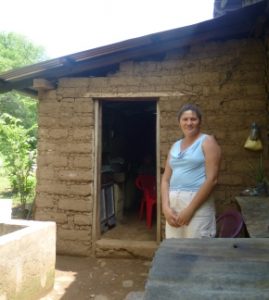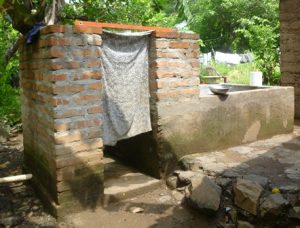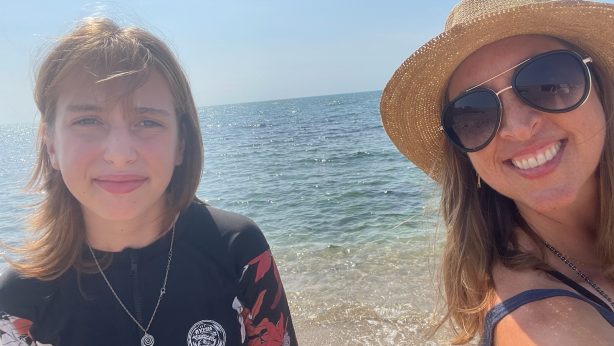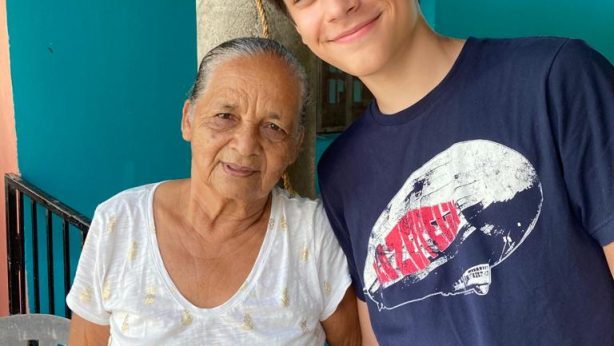Integrating Alternative Financial Services for Greater Impact
Earlier this month I wrote about the importance and hardships of pursuing a hygienic living environment for rural Honduran families in Choluteca and how Adelante addresses these needs with health education topics. The importance of maintaining basic hygiene and having access to sanitary shelter for a more dignified life cannot be stressed enough. Today I would like to address the broader role that both financial and non-financial services play in achieving our mission: to improve the standard of living of the poorest of the poor Honduran women and their families primarily through microfinance and education.

Ada stands in front of her kitchen with its new roof. Although happy with the changes she has now made, she hopes to secure a second Home Improvement Loan in the future to meet other needs she has, including plastering her walls to improve her home’s infrastructure, and installing cement flooring.
In addition to business and health education Adelante helps improve women’s living circumstances through alternative loan products, such as the Home Improvement Loan. This loan product exists to finance basic needs including the replacement of a roof, installation of cement flooring in place of a dirt floor, or to build a bathroom or septic tank – projects that would otherwise require several years to complete without financing.
Ada is one client who has built a latrine and has improved her kitchen with a Home Improvement Loan. To sustain her household, she runs a small store in her home where she sells a variety of basic goods including beans, rice and chicken. Her family consists of her five children between two and 16 years old, and her husband who is employed by a local business. The family lives in a house made of adobe and mud just off the side of the highway. In 2012 Ada received a Home Improvement Loan of L. 5,000 ($259) to invest in two important home improvement projects: to build a latrine outside her home for more hygienic and dignified sanitation facilities, and to replace a broken tile roof with tin roofing so that she can cook sheltered from the sun. Many clients do not have adequate roofing and must cook outside unprotected from the elements.

Ada’s story shows how Adelante´s financial services directly contribute to improving the health and wellbeing of our clients and their families. Although the cornerstone of Adelante’s model is the Solidarity Group Loans to be used for micro-businesses, our objectives extend beyond business growth to meet our clients’ needs in other areas. The opportunity provided through alternative financial products such as the Home Improvement Loan and non-financial services such as our Education Program allow women to improve their infrastructure and build upon their knowledge so that they and their children can thrive in healthier living environments.
As Truelift points out here, MFIs have to make strategic choices based on clients’ needs, local context and the capacity of the organization, meaning there is not one uniform way to provide services relevant to poor people everywhere. In doing so Adelante is constantly working to create new solutions to address the local situation Honduran women live and work in. Currently, Adelante is pursuing a collaboration to provide additional products including financing for clean cookstoves and secondary education that are not necessarily tied back to their businesses, yet accomplish our mission. As one of my fellow interns mentioned here, microfinance alone does not necessarily end poverty. At Adelante we believe an integrated client oriented approach with a social mission empowers women to develop their own solutions and rise out of poverty.


